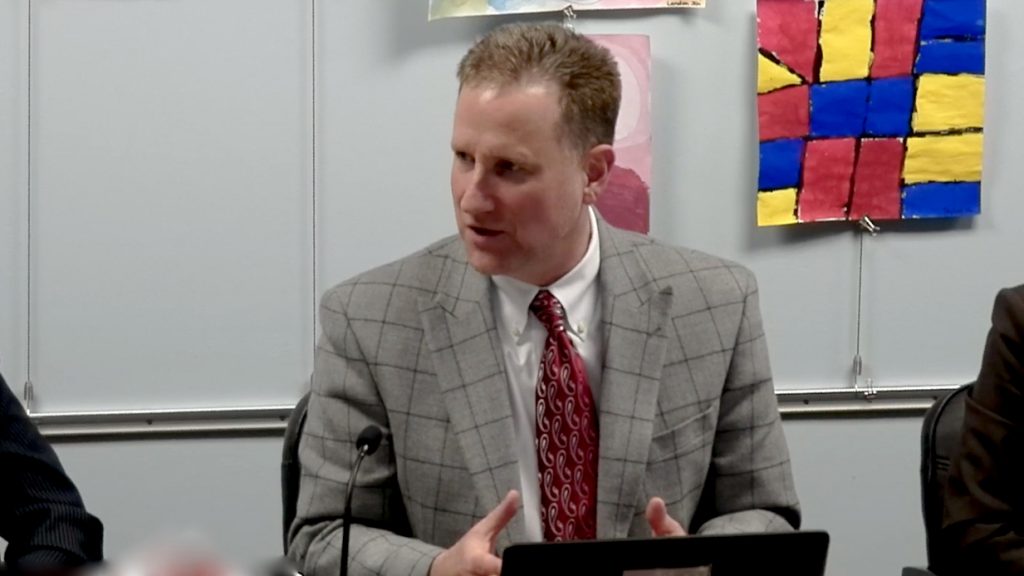School Administrators aim to close ‘achievement gap’ with move to two-level course instruction at middle and high schools
Administrators briefed the School Committee during their March 6 meeting on their plan to consolidate the levels of course instruction taught in Reading’s middle and high schools by moving from a three-level to a two-level structure of courses. Administrators believe the change will address an ‘achievement gap’ present between groups of students.

Assistant Superintendent Craig Martin
A presentation was given by Assistant Superintendent Craig Martin defining achievement gap, and what it means in Reading. Achievement gap is defined as the disparity in academic performance between groups of students. These disparities often show up in grades, state assessments, dropout rates, course selections, and college completion rates.
In Reading, differing groups are identified through the need for increased academic supports. It is believed that often the gap in achievement begins with a gap in opportunities offered, especially to students with academic challenges. The plan outlined to the School Committee intends to increase academic opportunities for struggling students by consolidating the levels of course instruction offered.
On the Middle School level, seventh grade math will move from three levels being offered to two levels. The same will be happening at the High School in English, Social Studies, and Science. The College Prep level will be eliminated in favor of the Strong College Prep and Honors options. The Advanced Placement programs would remain unchanged. Martin was quick to point out that there would no lowering of expectations, but that the lower levels were being eliminated. Students who traditionally would be in the lower levels will be challenged to meet expectations in the Strong College Prep classes, and students who exceed expectations in that level would be challenged to work at an Honors level.

RMHS Principal Adam Bakr
Reading Memorial High School Principal Adam Bakr continued the presentation sharing that this process has already started in several schools around the state. Of forty-eight schools surveyed, 60% have already moved from a three level to a two level approach. An advantage of the new system is that it will allow teachers to prepare lessons of greater depth due to the fewer number of preps each teacher would have, Bakr explained. The plan would also allow for a more even distribution of students in sections therefore class sizes will be more balanced, allowing better and more consistent student/teacher ratios. Students will have more schedule flexibility due to a greater number sections of each course being offered, and there would be a greater distribution of students who need additional supports across class sections. This should allow teachers more time to give individual attention to these students. Bakr continued stating that it is his belief that student college admissions should not be affected or may even be improved under the new plan.
The new model has been piloted in 12th grade english and 9th grade social studies this year, and has been seen as successful. The plan should allow for more student flexibility in math placement as there will now be several opportunities during their schooling for students to seek a more challenging math track instead of being divided into tracks in the seventh grade. The School Committee had many questions of Bakr and Martin regarding implementation and concern about helping teachers adapt to the new plan. The entire two-hour meeting can be seen on RCTV’s YouTube channel.
